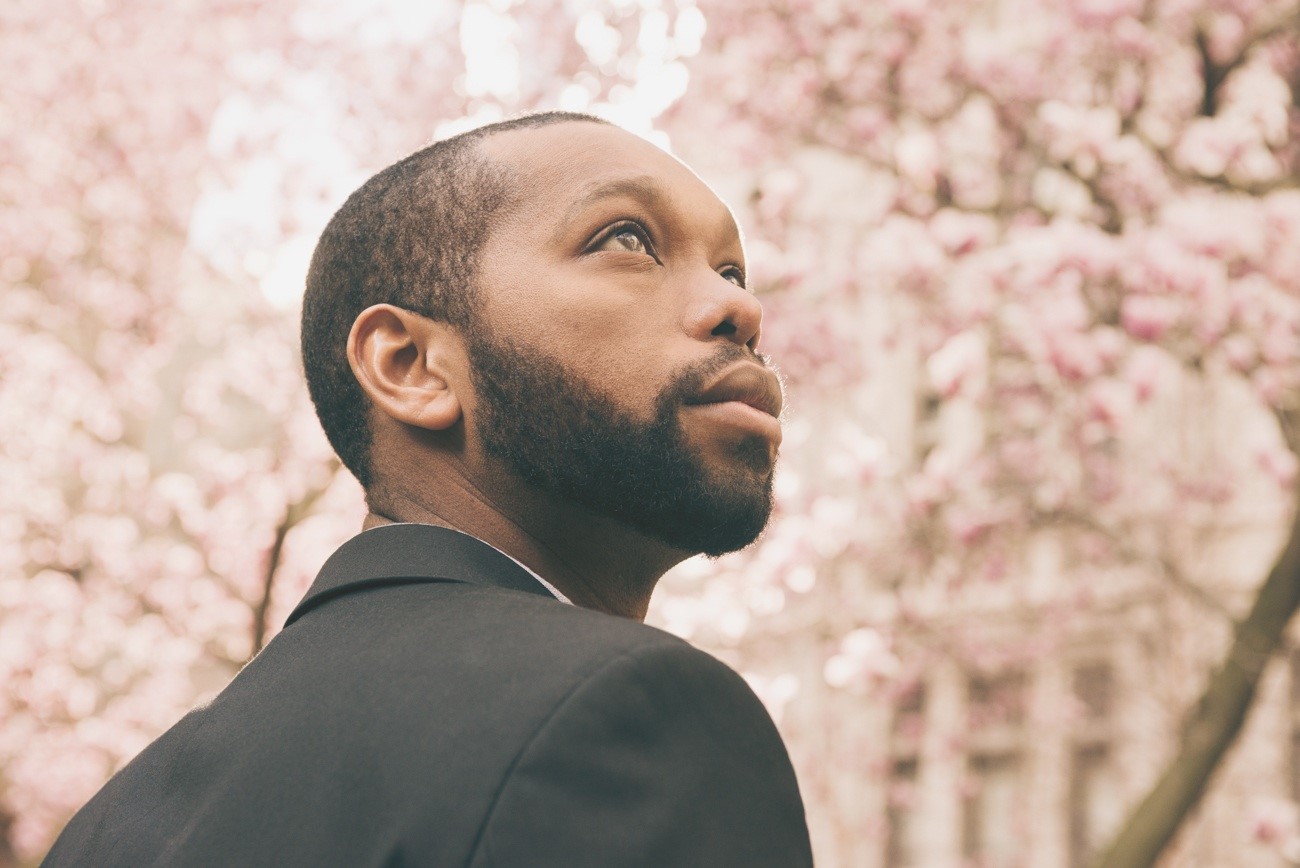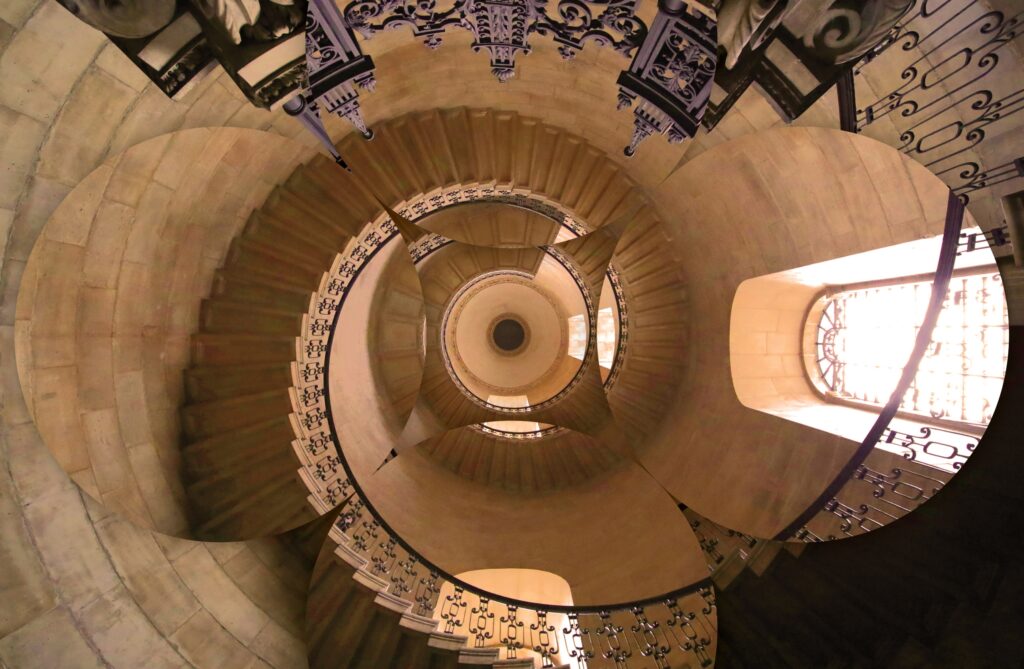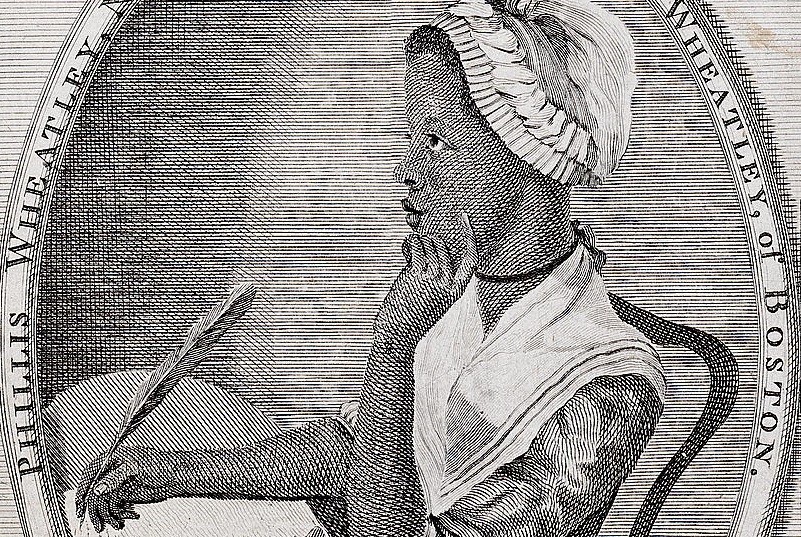
“This is precisely the time when artists go to work. There’s no time for despair, no place for self pity, no need for silence, no room for fear. We speak, we write, we do language. This is how civilizations heal.” ( Toni Morrison )
by Luisa Trisi
Does art, specifically music, have the capacity to lift us up and help us come to terms with the most painful episodes in human history? American singer and composer Jonathan Woody believes it does, and this conviction is what underpins his new composition that audiences will hear as part of Staircases, Alison Mackay’s latest multimedia project for Tafelmusik. Through words, images, and music, Staircases celebrates the exquisite artistic achievements of the past while exploring our complex historical inheritance and the difficult truth that many favourite works of baroque music, art, and architecture were partly financed by the proceeds of the transatlantic slave trade.
Jonathan was raised in a home full of art and books. As a librarian, his mother instilled a love of literature from a very young age, and his father is a visual artist whose work celebrates the vitality of Black culture while navigating the terrible legacy of the slave trade. It’s no surprise that Jonathan’s own artistic practice is informed by deep exploration of historical issues and a commitment to social equity and justice.
Music was another constant throughout Jonathan’s childhood, whether he was singing in the church choir as a young boy, falling in love with renaissance polyphony, or experimenting with composition as a teenager.
His first encounter with baroque music happened around the age of ten, when he sang Handel’s Messiah with his church choir. “There was something about that music that really struck me, and I have always felt connected to it, though I couldn’t tell you exactly why,” he says. Years later, he would be singled out as “the charismatic bass-baritone [who] was riveting in a number of solos, his voice nimble and focused,” in a New York Times review of the same work.
Today, Jonathan is highly sought-after as a soloist and chamber musician, appearing regularly with period orchestras across the United States and Canada. Throughout his career trajectory he has continued to explore composition, writing choral works for groups like the Trident Ensemble, among others.
But it was the events of the summer of 2020—specifically the massive social movement that erupted following the murder of George Floyd—that launched an unprecedented demand for Jonathan’s work as a composer. Since 2020, he has received commissions from Apollo’s Fire, the Choir of Trinity Wall Street, Chanticleer, Handel and Haydn Society, the Cathedral Choral Society of Washington DC, and of course, Tafelmusik.
“With all of the renewed interest and energy around social justice, my composition work fit into a sweet spot of what people were looking for at that moment—because I like to write work that combines inspiration from the 17th and 18th centuries with the minimalism and socially conscious subject matter of today’s music. So it was about being in the right place at the right time.”
More than a decade earlier, while Jonathan was at McGill University working on a Master’s degree with the noted musicologist and historical performance pioneer Bruce Haynes, he was accepted into Tafelmusik Baroque Summer Institute (TBSI), the acclaimed artist training program.
“What I love about Tafelmusik is how much of a family they are,” says Woody. “Even at that point, as a student, they absorbed me into the family, and I feel like I’ve been part of it ever since. So many of the musicians are good friends of mine.”
TBSI also launched Jonathan’s deep dive into the chaconne, the compositional form associated with a popular baroque dance. “I got to hear Tafelmusik play some of the chaconnes by Lully that I think are among the best music ever written.”
In a fortuitous variation on the theme of chaconne, Jonathan returned to Tafelmusik several years later—this time as a guest soloist, having won his category in the 2016 vocal competition. His Tafelmusik mainstage debut included “Chantons tous,” a chaconne from Lully’s opera Amadis. “That was an incredible full circle moment for me. It’s still one of my favourite concerts ever.”
Through TBSI, Jonathan encountered Mackay’s groundbreaking 2009 multimedia program, The Galileo Project: Music of the Spheres, which blended music, text, and images into a seamless tapestry. “I was impressed with the concept, the execution, and the sequence of these random pieces of music woven together to tell a story.”

Fast forward to 2022, when Jonathan received Mackay’s invitation to collaborate on her latest multimedia creation, Staircases, as narrator, vocal soloist, and composer. On both artistic and personal levels, he was deeply interested in her intent to examine the debt which some of our most beloved works of art and music owed to the proceeds of slavery.
“I can certainly relate to that narrative within the context of the transatlantic slave trade and the history of black people in North America,” he says. “It’s part of my own family’s background, and it’s central to the narrative for a lot of African Americans. So to be able to take that history, which has a lot of pain and darkness associated with it, and try to use this baroque musical language that I love, but that doesn’t explicitly deal with these issues, is very meaningful.”
The first half of Staircases introduces the theme of artistic muses from Greek mythology and explores the social context of staircases throughout baroque Europe, as the orchestra plays music by Handel, Lully, and Purcell. The second half includes works by Corelli, Fux, Bach, Vivaldi, and Platti. Staircases culminates with Jonathan’s composition, The Unbounded Soul, a three-movement piece for orchestra and bass baritone modeled on the baroque concerto grosso. However, unlike works of the period, Jonathan’s piece proposes a narrative from a unique point of view.
“I see my role here as putting myself back in that time period and offering a different perspective: what if there were a composer who had descended from slaves, who was writing baroque music? I wanted to think about how that might sound, and how that music might tell a story slightly differently from what other composers depicted in their versions of reality.”
Jonathan’s piece draws on rhetoric, a signature device of 17th-century repertoire. “One of one of the things I love about baroque music is that the musical gestures can be extremely evocative of mood or affect; something as simple as an interval, like a descending six or an ascending fifth, can conjure specific emotions. Baroque composers like Bach and Handel were able to utilize those musical gestures in extremely effective ways to convey meaning. As a neo-baroque composer, I try to take those same compositional techniques and apply them to the subject at hand.”
The solemn first movement of The Unbounded Soul features a descending motif in a minor key, “which for me was representative of the experience of people who were forcibly removed from their homeland in Africa and then brought across the ocean to the Americas. The music cascades downwards but never quite reaches the bottom before starting over again.”
In the second movement, Jonathan establishes an uneasy mood to evoke The Middle Passage, the horrific journey of enslaved peoples across the Atlantic. From the 16th to 19th centuries, an estimated 12.4 million Africans were forced to board ships that sailed to the Americas under extremely inhumane conditions.
“I learned about The Middle Passage as a small child and believe it’s central to the narrative of Black people who descend from enslaved Africans. That trauma of being taken from Africa and brought to North America or South America still exists in the bodies of many of us. I wanted to convey that unsettled feeling musically—the sense that there was no home to be found, the sense of a lack of control and safety.”
Jonathan uses the complex 9/8 time signature and a number of deceptive cadences to reflect the chaos and disorientation of The Middle Passage. “Any time the ear is expecting a resolution to the tonic, it just doesn’t arrive; it goes somewhere else. There’s a point where I use seven or eight deceptive cadences before arriving at the tonic, to give this sense that we don’t know where home is. And we might not know where home is for a long time to come.”
The mood changes for the third and final movement, with Jonathan returning to the chaconne, a form he associates with Tafelmusik. Inspired by a sense of hope and profound respect for human resilience, the closing section of The Unbounded Soul signals a departure from the previous two movements.
“Though these events in history were terribly traumatic and still linger to this day, as a Black person, I don’t want to tell a story that is only about suffering and pain. I want to tell a story about hope. The metaphor of a staircase conveys the idea that as we climb higher and higher musically, we’re also climbing with our hearts and souls, hoping for a better future.”
As the chaconne draws to a close, we hear Jonathan singing music he set to a stanza from On Imagination by Phillis Wheately, the trailblazing 18th-century African-American poet and abolitionist.
“The poem is exactly the right sentiment that allows us to look at an institution, a status quo that is deeply harmful. And yet, there’s this incredible human power we have to envision something that doesn’t exist. Even when people are suffering deeply, they still have the ability to create, out of thin air, a new reality in their imaginations. I think that’s incredibly powerful. And it’s as relevant today as it was back then.”

“I’m also conscious of the resilience that has always been present among oppressed people. Whether they are my ancestors, the enslaved Africans, or people today who are oppressed by various forces, hope is the binding thread that helps people move forward and provides a reason to choose life.”
Echoing Wheately’s invocation of the Muses and the theme that unites the entirety of Staircases, Jonathan’s belief in the potential of creativity to uplift and liberate the human spirit is unwavering.
“Art or artistic expression has power. It has the ability to deal with issues that we’re living through at this very moment. Ultimately, what causes people to hurt each other is not feeling seen, not feeling heard, not feeling complete. And I think art helps to overcome that, it helps us all find who we are. I feel really grateful that I’ve had that in my life, and I want to try to spread it as far and wide as I can.”
* from Phillis Wheately’s poem On Imagination

A pinnacle of our 45th-anniversary season, Staircases is a new creation by Alison Mackay, whose award-winning multi-sensory programs have enhanced Tafelmusik’s reputation for artistic innovation. The concert is designed in collaboration with the acclaimed American bass-baritone and composer Jonathan Woody, who acts as narrator, singer, and creator of a new work.
March 22-24, 2024
Jeanne Lamon Hall
